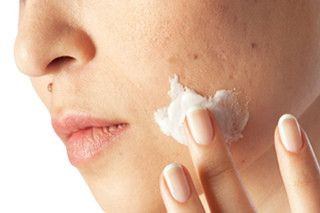Does Your Diet Promote Acne? Researchers May Have An Answer

Over 17 million Americans suffer the physical and social effects of acne such as social withdrawal, anxiety and possible permanent scarring of skin.
Research in the late 1800s linked foods such as sugar, fat and chocolate to acne development. But, in the 1960s new lines of evidence suggested that diet had no impact on the development of pimples and acne.
"This change occurred largely because of the results of two important research studies that are repeatedly cited in the literature and popular culture as evidence to refute the association between diet and acne," said Jennifer Burris, MS, RD, of the department of nutrition, food studies, and public health at Steinhardt School of Culture, Education, and Human Development at New York University. "More recently, dermatologists and registered dietitians have revisited the diet-acne relationship and become increasingly interested in the role of medical nutritional therapy in acne treatment."
The new study looked at research published in three distinct periods of time through the different ideas as to whether diet caused or promoted acne.
Researchers determined that foods that had a high glycemic index, or raised blood sugar quickly, and consumption of dairy products are linked to acne development.
They make the point that while the most recent and rigorous studies in the last 10 years doesn't say that diet causes acne directly, it may aggravate existing acne and make it worse or more pronounced.
There are many products on the market that try to decrease acne by drying out the skin, like Accutane, which can cause depression and has been linked to depression and suicides in some cases.
The authors conclude by saying that dermatologist and nutritionists should work together on researching the direct role diet has on acne and develop dietary interventions to curb it's prevalence.
The report is published in the Journal of the Academy of Nutrition and Dietetics.
Published by Medicaldaily.com



























